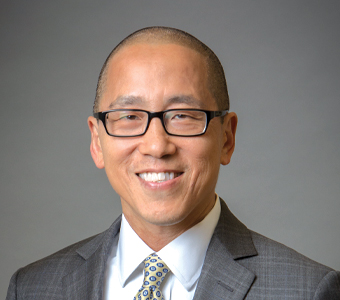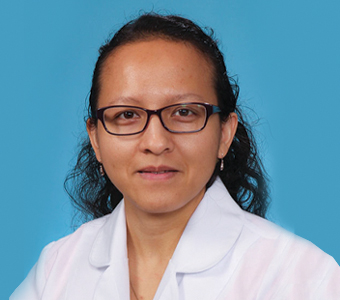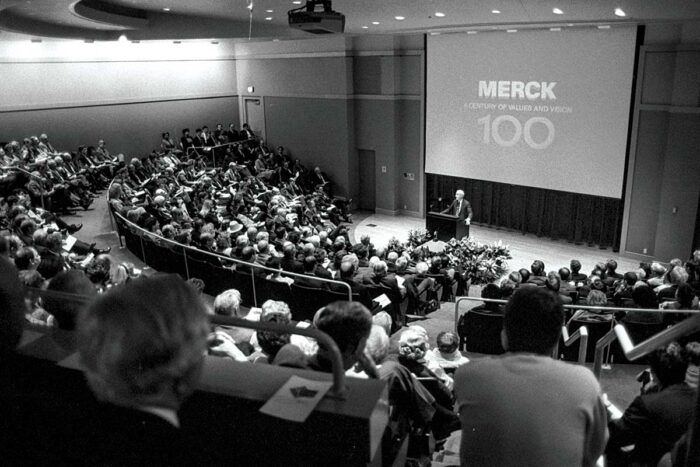
Roger M. Perlmutter, MD/PhD ’79, entered the Medical Scientist Training Program (MSTP) at the School of Medicine in 1973. Although the program was just four years old, its renowned faculty and unique pedagogy were firmly in place. Perlmutter found himself learning biochemistry from P. Roy Vagelos, MD, one of MSTP’s founders, and Luis Glaser, PhD ’56, head of the biological chemistry department and a former student of Nobel laureates Carl and Gerty Cori.
Rather than teaching from a textbook, Vagelos and Glaser assigned primary literature to their students. Each week, Perlmutter and his classmates pored over scientific papers, interpreting and interrogating their findings. The course was an exercise in critical analysis and an effective introduction into the rigorous training Perlmutter would receive over the next six years.
The training ably prepared Perlmutter for a distinguished career in pharmaceutical research and development, notably at Merck & Co., from which he recently retired. The Merck Foundation is honoring Perlmutter’s tenure with a $2 million commitment to the medical school for career development assistant professorships. Perlmutter views the gift as an opportunity to acknowledge the place where it all began for him.
A foundation for success
At the medical school, Perlmutter found “an extraordinary group of faculty and fellow students who were focused on asking important questions about biomedical research and developing the ability to answer those questions.” One of those faculty members was Joseph M. Davie, MD, PhD, his dissertation adviser and then-head of the Department of Microbiology and Immunology. “I simply could not have had a more supportive, thoughtful or humane mentor,” Perlmutter said of Davie.
David M. Kipnis, MD, also left a lasting impression on Perlmutter. Kipnis, a pioneering physician-scientist who led the Department of Medicine, strongly advocated for research partnerships between medicine and the basic sciences. Together, Davie, Kipnis and others profoundly shaped Perlmutter’s approach to science and medicine. He learned that basic scientific research was much too important to be left to the basic scientists alone, as Carl V. Moore, AB ’28, MD ’32, founder of the medical school’s hematology division, often argued. “Clinicians needed to understand that work and to make use of it in their clinical practice,” Perlmutter said. “This understanding informed everything I did in my career thereafter.”

Perlmutter began his professional life in academic medicine at the University of Washington, Seattle, where he was a professor of medicine and biochemistry and the founding chair of the immunology department. He then became executive vice president of worldwide basic research and preclinical development at Merck before moving to Amgen Inc., where he was the executive vice president of research and development for more than a decade.
In 2013, he returned to Merck as executive vice president and president of Merck Research Laboratories, where he reinvigorated drug discovery and development. Under his watch, the company earned more than 100 global regulatory approvals for vaccines and treatments targeting cancer, diabetes, Ebola and HIV, among other diseases. Perlmutter’s greatest legacy at Merck is arguably his work in cancer immunology, which yielded the revolutionary cancer immunotherapy Keytruda.
Alumnus Dean Y. Li, MD/PhD ’90, succeeded Perlmutter as president of Merck Research Laboratories in January 2021. “Roger Perlmutter saw data that shook his view of cancer biology,” Li said, “and he took risks to prove his point. Because of his work and the team he assembled, Merck has redefined cancer treatment. He helped change the trajectory of medicine.”
A dynamic legacy

The Merck Foundation wished to pay tribute to Perlmutter’s impact by making a gift to an organization with personal meaning. For Perlmutter, that place was the medical school. The gift establishes two Roger M. Perlmutter Career Development Professorships to support promising young physicians and scientists from populations that are historically underrepresented in medicine and biomedical sciences. Monica Chang-Panesso, MD, an assistant professor of medicine in the Division of Nephrology, was awarded the first of the two professorships.
“Our student body at the School of Medicine is incredibly diverse,” said David H. Perlmutter, MD, executive vice chancellor for medical affairs and the George and Carol Bauer Endowed Dean of the School of Medicine. “This generous funding will help us foster greater diversity within our faculty and, ultimately, the fields of science and medicine by supporting physicians and scientists at a pivotal professional time.”

The gift also pays tribute to the rich, shared history between Merck and the medical school. Over more than 40 years, alumni and faculty have left their mark on Merck. Among the group are Vagelos, who oversaw the company’s research division before becoming its CEO, and Joe Miletich, MD/PhD ’79, now a senior scientific adviser to the CEO and a former classmate of Roger Perlmutter.
These long-standing connections do not surprise Perlmutter. “Washington University Medical Center exemplifies the fundamental mission of the academic medical center, which is to translate advanced research into clinical improvements that really matter,” he said.
Perlmutter hopes the recipients achieve their own scientific breakthroughs and are able to one day say, “This is how I got my start.”
Published in the Winter 2021-22 issue





 Share
Share Tweet
Tweet Email
Email